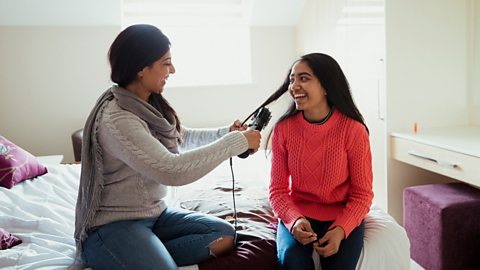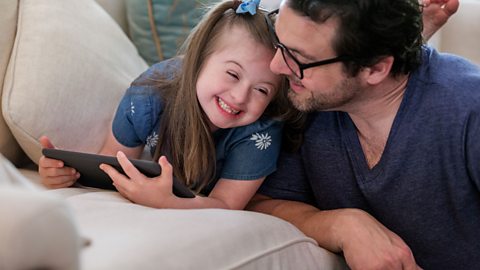Jacques OâNeill is a professional rugby league player who rose to national fame appearing on Love Island 2022. Jacques talks publicly about his struggles with ADHD (Attention Deficit Hyperactivity Disorder) and how it has shaped him from being a kid to where he is today.
Jacques explains to Parents' Toolkit how his mum has helped him to thrive and how sport played a pivotal role in giving him focusâŠ

Jacques O'Neill shares his story
Jacques OâNeill: My mum definitely changed the ways of trying to help and be more patient with me, but it was also so much hard work for me mum, like so much hard work, and parents out there, they probably understand, or want to understand, more of their child with ADHD, one hundred percent, because weâre not the most straightforward people.
It probably began around nine-years-old when I got diagnosed with my ADHD. I was always very disruptive in the classroom, always very impulsive as well, you know when I⊠if I got told off - it caused into a bigger problem and a bigger problem. I was always looked at as a problem child. People would always say, 'heâs just a misbehaved kid,' but on the other-hand Iâd say, 'Iâm just a misunderstood kid,' you know?
How I would describe having ADHD: I use the term âwashing machine.â So it's almost like your head is just going and going and going and you canât really stop.
So, sports started for me when I was around five years old. I started playing rugby, my mum got me into it, and yeah, Iâd never look back really because it was the best thing for me, and I actually turned professional at sixteen. You know, I didnât do well at school so sport for me was literally just one thing I was good at and so I needed to do well at it because otherwise I donât know where Iâd be now. Yeah, a hundred percent Iâd say rugby saved me, massively, really saved me.
At twenty-three years now, I feel like Iâve only just started learning about it. I wish I knew how to handle things earlier; I wish I knew why I do things. If I was going to give ten-year-old Jacques advice from me right now, Iâd probably say: 'everything is going to be okay.'
âParents out there want to understand more of their child with ADHD, one hundred percent, because weâre not the most straightforward people.â
For Jacques - life in the Love Island villa became difficult - leaving the show for mental health reasons and to "get back to himself". After leaving Love Island he wanted to cancel his social media and step away from the attention, but in an interview he revealed:
"I started getting loads of people contacting me and saying I'm an inspiration with the ADHD side and a bit of a role model⊠I was getting fully grown men messaging me saying, 'love you, you're an inspiration', I was overwhelmed with it all."Now Jacques says he is determined to help young people with ADHD - offering them the sort of support he received from the ADHD community on social media after leaving the villa.
Jacques was diagnosed with ADHD at the age of nine. Describing his ADHD he says: "I use the term 'washing machine.' So it's almost like your head is just going and going and going and you canât really stop." Consequently he didnât do that well at school. He was impulsive and disruptive and seen as problematic in class.
He says: "⊠sport for me was literally just one thing I was good at and so I needed to do well at it because otherwise I donât know where Iâd be now." He turned professional aged only 16 and is in no doubt that: "rugby saved me".

Taking part in physical activity seems to have a positive effect on improving some ADHD symptoms and often helping to improve cognitive, emotional and behavioural states as well as academic performance.
The discipline of taking part in sport - and the elements of reward, motivation and stimulation that sport can bring - are beneficial for people who have ADHD. And certain features of ADHD â âsuperpowersâ like hyperfocus, high energy levels and persistence are excellent attributes for sporting success have suggested.
Some athletes have shared how sport gives them structure and ways of coping - like GB Olympic athlete Louis Smith who was diagnosed with ADHD aged seven:
"It gave me the tools necessary to channel my ADHD throughout my childhood, and as I grew up through the sport, I quickly found a purpose in life, and it has made me the person I am today."
Boxer Nicola Adams has spoken of her ADHD: âI think itâs helped my training. I never get tired. Iâve always got energy. It helps with my shots. Iâm always trying new things.â
We spoke to Professor Anthony J. Maher - an expert in Special Educational Needs, Disability and Inclusion.He says: "Sport can be beneficial to all young people, including those diagnosed with ADHD⊠Moreover, sport has been found to help to develop social skills, friendships and feelings of belonging, and impact positively on mental health and wellbeing. Such benefits are especially important for young people with ADHD, who are more likely to experience anxiety and depression compared to their peers.
"There's also some research suggesting that sport and physical education at school can be more conducive to the learning and development of young people with ADHD because it allows them to use their energy to express themselves in an environment that's less organised and structured than many other curriculum subjects."
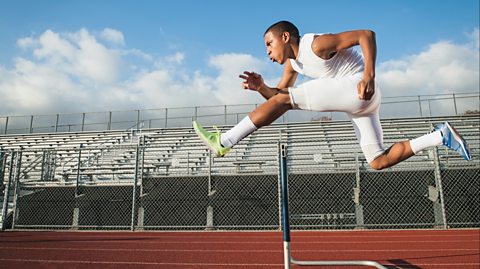
Many young people with ADHD are seen as disruptive or impulsive and this can cause problems in school and at home. Like Jacques - some kids with ADHD find that sport really helps them. These young people found an outlet in boxing:
Jamie was excluded from primary school aged nine although teachers were aware of his diagnosis. He says: "Anger is a big part of my ADHD⊠If I get annoyed it takes me a long time to calm down⊠But the boxing helps me get my anger out and it helps me control it."
For teenager Aalijah: "The boxing really helps⊠It lowers my energy and calms me down, helping me to concentrate."
While another teen, Levi, who was excluded twice from mainstream schools for disruptive behaviour and eventually diagnosed at a pupil referral unit, says: "The diagnosis and medication helpedâŠBut it's the boxing that really helps as I'm always so full of energy and struggle to concentrate."
Susan Young, president of the UK ADHD Partnership says: "Sporting activities, such as boxing, are so good for children with ADHD.
"They learn how to interact with people, adapt to an environment and judge situations - skills that will help in real life.
"Boxing, especially, teaches impulse control and channels emotions in a constructive way.
"People with ADHD have so many positives. They are often fun, creative and engaging. They might simply need help to channel their energy and sport is great way to do this."
Read more about Aalijah, Jamie and Levi in this article from ±«Óătv Wales.
For parents who are finding it difficult to understand their child's behaviour or cope with their energy, sport can offer focus, discipline, socialisation and somewhere to channel their energy. And parents can help:
Professor Maher says: "Parents and guardians are more likely than anyone else to introduce young people to sport. Therefore, it is important that they role-model the sporting behaviours that are needed to encourage their child with ADHD to engage in sport."
Discussing sporting opportunities with your child's school can help find a pathway - or where schools don't offer some activities you can learn about getting into different sports across the UK on this activity finder from ±«Óătv Get Inspired.


Below are links to organisations and videos with more information, advice and resources:
Horse riding is another sport that has helped a young person with ADHD. Follow Kai's story here.
explains more about ADHD.
The UK ADHD Partnership has resources including .
brings together voluntary organisations providing support to adults and children with ADHD in Scotland, and their parents, carers and families.
The has a forthcoming event about .
Mental health charity MIND have a section devoted to
In this ±«Óătv film a young person talks about his ADHD as a superpower - for an extended interview and more - this 20 minute from ±«Óătv Stories features a parental support group, people discussing their ADHD, alternatives to medication and school environments.
Thanks to Professor Anthony J. Maher - Director of Research & Professor of Special Educational Needs, Disability and Inclusionat the .

More from ±«Óătv Bitesize Parents' ToolkitâŠ
Parents' Toolkit
Fun activities, real-life stories, wellbeing support and loads of helpful advice - we're here for you and your child.

What is it like to parent a child with ADHD?
Real parents talk about their experiences having a child with ADHD and offer their advice for parents in a similar situation.
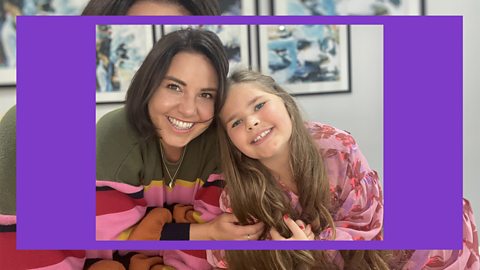
What is ADHD and does my child have it?
Paediatrician Dr Richard Lee-Kelland explains how parents can spot ADHD in their child and how to get diagnosis.
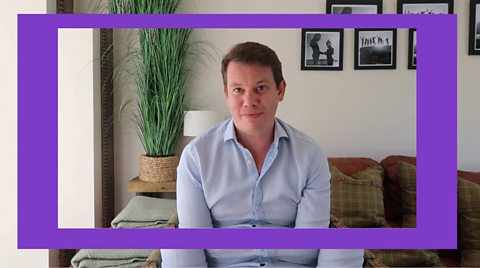
The Child in Mind podcast. From Anna Freud National Centre for Children and Families.
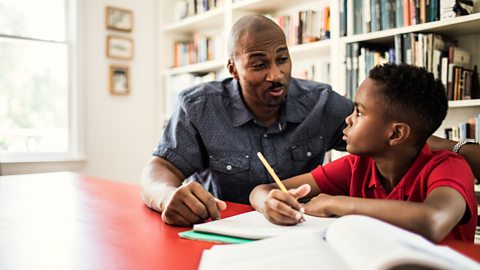
Wellbeing advice. collection
From healthy eating to mental health, we've got advice for all the family.
